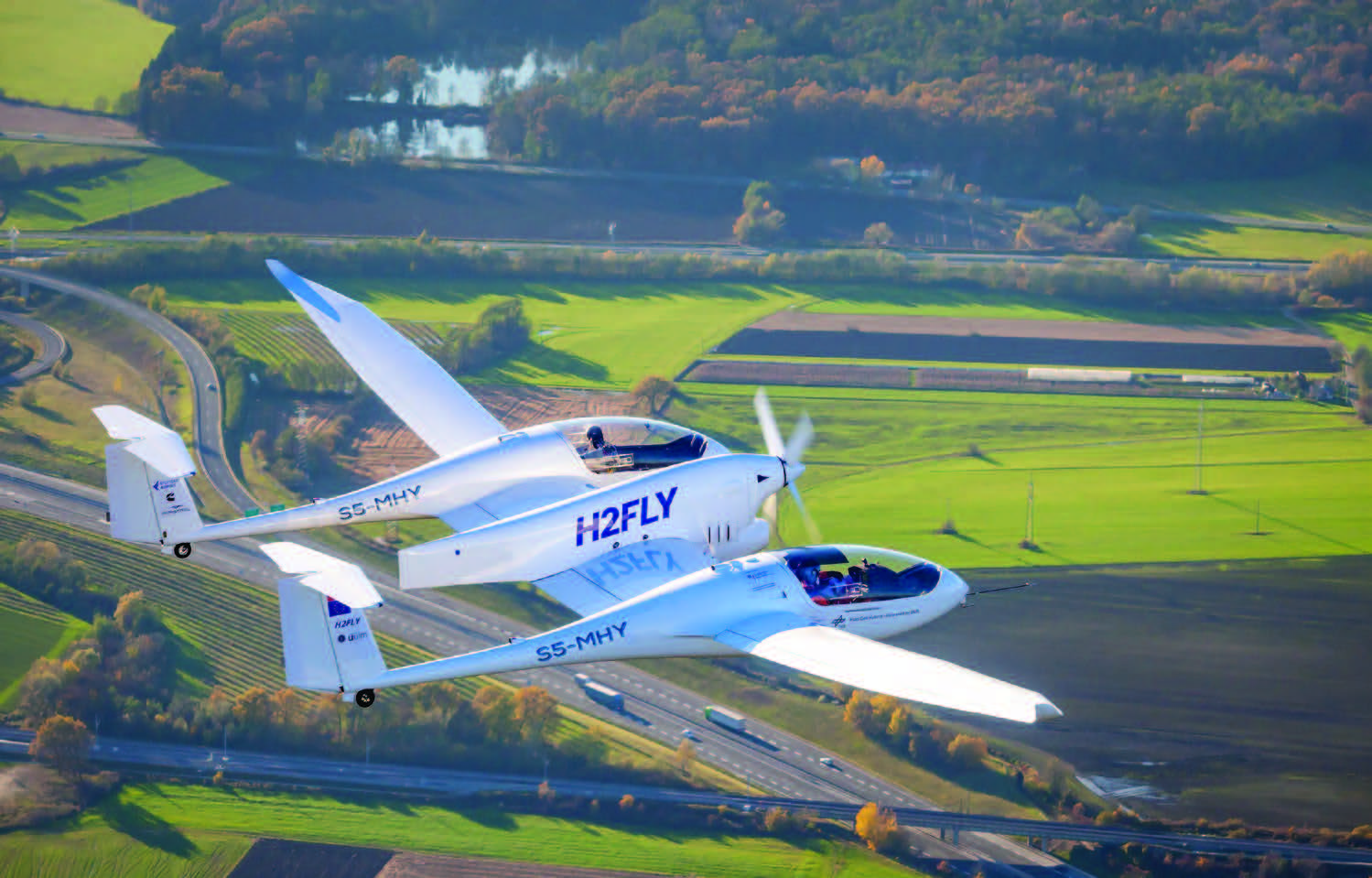H2FLY Pioneers Emissions-Free Flight with Successful Liquid-Hydrogen-Powered Aircraft
 Stuttgart-based innovator H2FLY has achieved an unprecedented breakthrough in aviation history by successfully conducting the world’s first piloted flight of an electric aircraft powered by liquid hydrogen. This remarkable milestone marks a pivotal moment in the journey towards sustainable aviation, showcasing the immense potential of hydrogen-based technology in revolutionizing the industry.
Stuttgart-based innovator H2FLY has achieved an unprecedented breakthrough in aviation history by successfully conducting the world’s first piloted flight of an electric aircraft powered by liquid hydrogen. This remarkable milestone marks a pivotal moment in the journey towards sustainable aviation, showcasing the immense potential of hydrogen-based technology in revolutionizing the industry.
Technological Advancements in HY4 Aircraft
The HY4 aircraft’s propulsion system stands as a testament to cutting-edge engineering. It harnesses the power of a hydrogen-electric fuel cell system founded upon advanced low temperature PEM technology. This system's resilience is underscored by the presence of four redundant systems, ensuring unparalleled reliability even under low pressure conditions, maintaining functionality at a minimal 0.35 bar absolute.
Integral to the aircraft’s operation is the cryogenic storage of liquid hydrogen, facilitated by a meticulously designed multilayer vacuum insulated dewar tank. Extracting hydrogen for the fuel cell system involves an intricate water-glycol evaporator mechanism, optimizing the evaporation of liquid hydrogen for efficient utilization in the aircraft. Stringent safety protocols in place adhere rigorously to industrial and aviation standards, ensuring the secure and safe handling of cryogenically stored liquid hydrogen during all phases of flight.
Performance Metrics and Environmental Impact
The adoption of liquid hydrogen as the aircraft’s power source presents a substantial leap in performance. This innovative technology effectively doubles the range of the HY4 aircraft to an impressive 1,500 km, surpassing the limitations associated with gaseous hydrogen. Beyond its enhanced performance, the hydrogen-electric propulsion system boasts zero emissions during flight, contributing solely water vapor and significantly reducing the aviation industry's carbon footprint.
Industry Impact and Future Trajectory
H2FLY’s groundbreaking achievement serves as a catalyst, propelling the aviation industry’s collective efforts towards carbon emission reduction. Aligned with global environmental sustainability objectives aiming for net-zero emissions by 2050, this technological advancement serves as a cornerstone for transformative change in aviation.
The vision forward for H2FLY encompasses the strategic scaling of this pioneering technology, envisaging its integration into regional aircraft and diverse aviation applications. The company’s unwavering focus remains on developing robust fuel cell systems, aimed at enabling emissions-free commercial flights and spearheading a sustainable aviation revolution.
Collaborative Endeavors and Key Partnerships
The success story of the liquid hydrogen-powered flights owes its realization to collaborative efforts with esteemed partners including Air Liquide, the German Aerospace Center (DLR), EKPO Fuel Cell Technologies, Fundación Ayesa and others. These partnerships, bolstered by support from European government funding and various ministries, have been instrumental in accelerating the progress of hydrogen-powered flight.
Pathway to Commercialization and Industry Transformation
H2FLY’s ambition to commercialize hydrogen-electric aircraft by 2027 signals a transformative shift in the aviation landscape. The potential commercial availability of these aircraft would provide airlines and passengers access to revolutionary, sustainable air travel options, heralding a new era in commercial aviation. The successful completion of flight testing in Project HEAVEN signifies a critical stride towards realizing emissions-free, medium- and long-haul commercial flights. H2FLY’s relentless commitment to innovation and sustainability positions them at the forefront of reshaping the future of aviation.
The groundbreaking liquid hydrogen-powered flights conducted by H2FLY represent not just technological achievements but herald a paradigm shift towards a more sustainable future for air travel. H2FLY’s pioneering strides in hydrogen-based aviation technologies lay the groundwork for a cleaner, greener and more efficient era of aviation, setting new standards and inspiring worldwide transformation in the skies. www.h2fly.de
Image: The HY4 can seat up to four fliers and has a range of 932 miles. Credit: H2Fly


